Monterey Almond Tree
Description
The Monterey Almond Tree is a naturally small tree – a perfect choice for backyard gardeners wanting to grow nuts!
As the earliest-flowering stone fruit, almond trees have the added bonus of also being an ornamental flowering tree, with striking white flowers in early spring. Almond trees are deciduous, hard trees with spreading crowns.
The Monterey Almond produces heavy crops of elongated almond kernels with a soft, well-sealed shell. These trees produce fruits that tend to double. Nuts are utilized for snacking, baking, candy, and making almond milk!
Monterey Almond is a small yet vigorous grower and serves as a great pollinator for Nonpareil and vice versa. It blooms two days after the popular Nonpareil. The harvest season is late for this heavy bearing variety, coming weeks after Nonpareil.
Almonds prefer light, well-drained, sandy soil and grow best in full sun. Plant in a location where chilly air or frost will not settle. This is a low chill variety, best suited for warmer climates. For cooler climates, you can grow Monterey Almond trees in containers that are brought indoors for the winter.
Almonds provide a delicious, nutritious, and extremely versatile addition to any homestead or garden!
Survival Guaranteed!
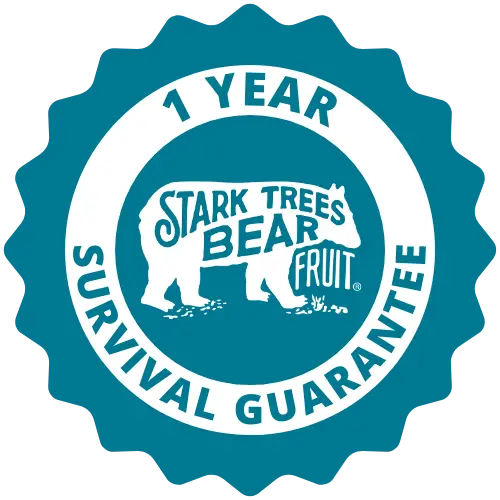

Since 1816, Stark Bro’s has promised to provide customers with the very best fruit trees and plants. It’s just that simple. If your trees or plants do not survive, please let us know within one year of delivery. We will send you a free one-time replacement, with a nominal shipping fee of $9.99. If the item in question is not available, we can issue a one-time credit to your account equaling the original product purchase price or issue you a refund. Read more about our warranty policy.
Characteristics
| Bloom Color | White |
| Bloom Time | Mid - Late |
| Fruit Color | Brown |
| Fruit Size | Large |
| Hardiness Zone Range | 6 - 9 |
| Pollination | Pollinator Required |
| Ripens/Harvest | September |
| Shade/Sun | Full Sun |
| Soil Moisture | Well Drained |
| Soil pH Level | 6.0 - 7.0 |
| Years to Bear | 3 - 5 |
Size & Spacing
Mature Size
Recommended Spacing
Zone Compatibility
Pollination
This variety requires another one for adequate pollination.
Tools & Supplies
Planting & Care
Learn all about how to grow almond trees in The Growing Guide. An entire section of our website dedicated to your growing success.
Shipping Information
Arrives when it's time to plant
Questions & Answers
No I am sorry with out another variety for pollination this tree wil lnot bear nuts.
Depends on the distance from the other trees but they are pollinated by bees so you wouldn't want them too far from each other. The Halls Hardy Almond is self fertile whereas the Monterey is not, so you might do better with 4 or 5 Hall's Hardy and 1 Monterrey to increase their output. Even though they are self fertile, they will do better with another variety nearby. The benefit of using more Halls instead of the Monterey is that they can handle colder climates. I am in zone 6 but won't plant anything that can't handle zone 5 conditions, because weather is unpredictable. So, even though I have a Monterey, I don't count on it, I have several other Almond varieties that can handle zone 5 instead of zone 6 like the Monterey. Hope that helps. By the way I am not an expert almond grower, only started planting them about 3 years ago, so don't take what I say as gospel. :)
The average healthy and mature almond tree can produce 50-65 lbs of nuts.
Hall's Hardy Almond Tree to yield a good almond crop?
Cross-pollination by a different variety is key to its growing and bearing success. Plant one of these varieties within 100' for best pollination. Halls, Carmel or All in One almond.
You can plant your pollinating tree next season if you would like, these do not bare for 3-5 years.
One species cannot pollinate another; for example, a plum cannot pollinate an apple, and a pear cannot pollinate a peach. A fruit tree that requires a pollinator needs a different variety of the same species that has a similar bloom time. So the Almond needs another Almond for proper pollination.
This variety is sweet.
This variety has a Mature Height of 12 to 15 ft.

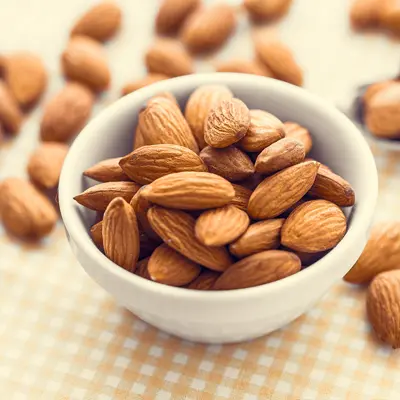
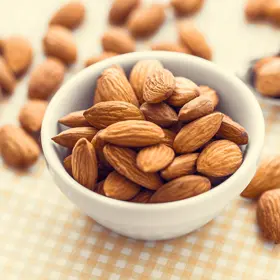
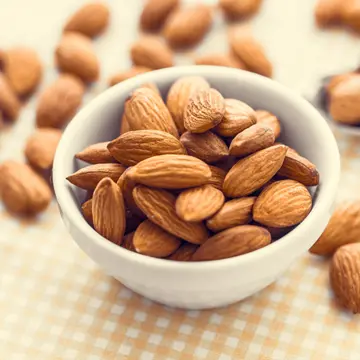
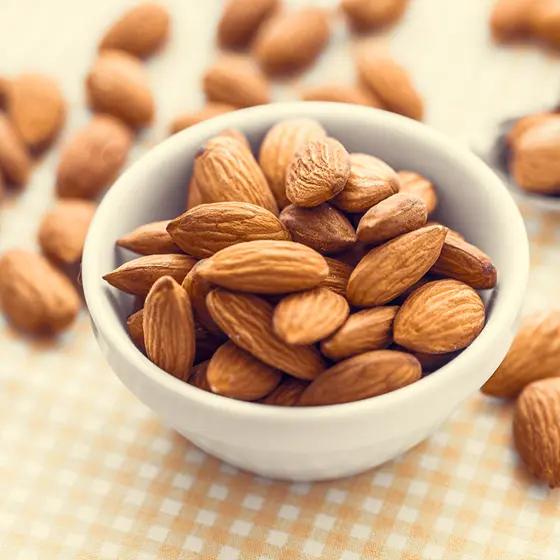
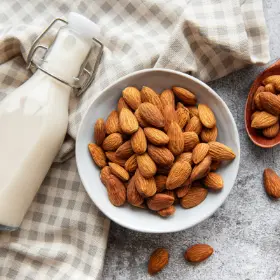
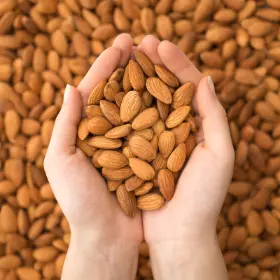
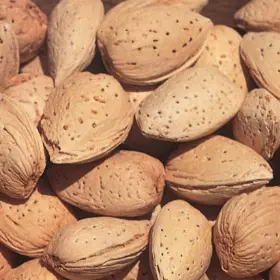

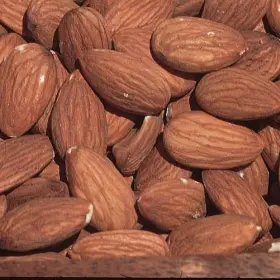

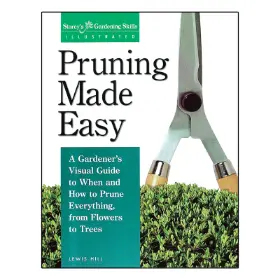
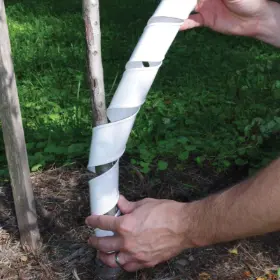
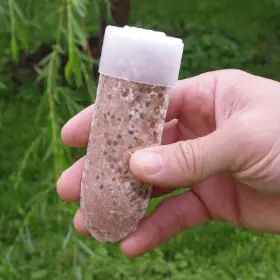

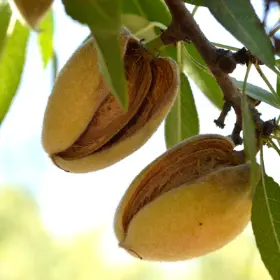
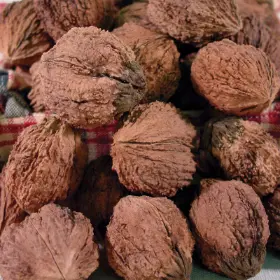
Like what I've heard of it.
I need a pollinator for the previously ordered Non-Pareil almond tree.
Purchased to make almond milk.
Purchased before and easy to grow.